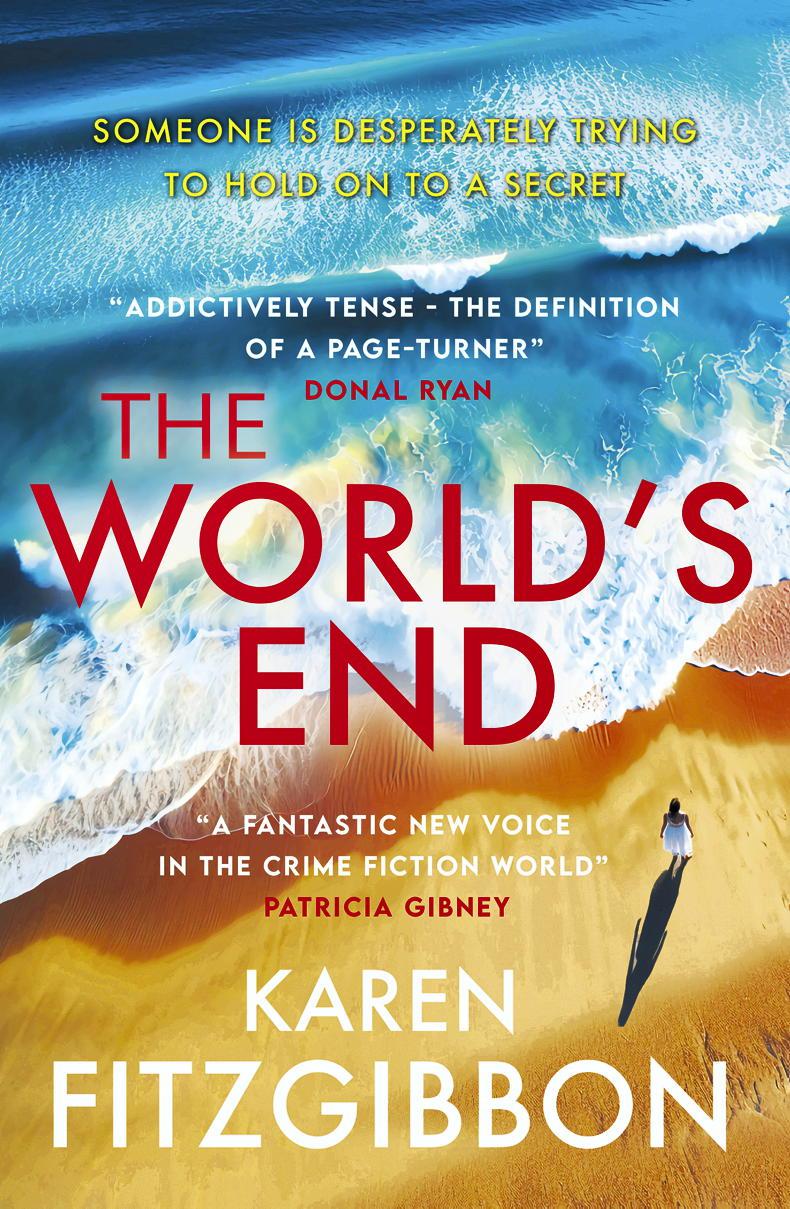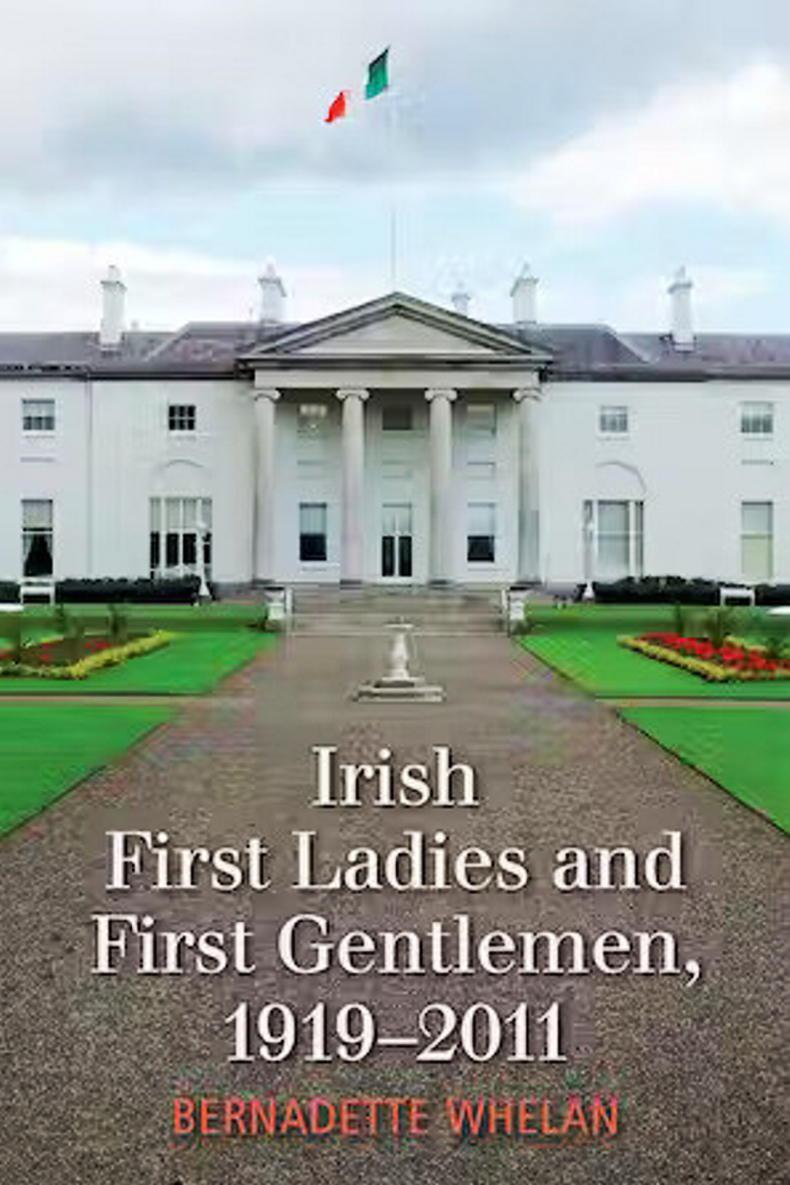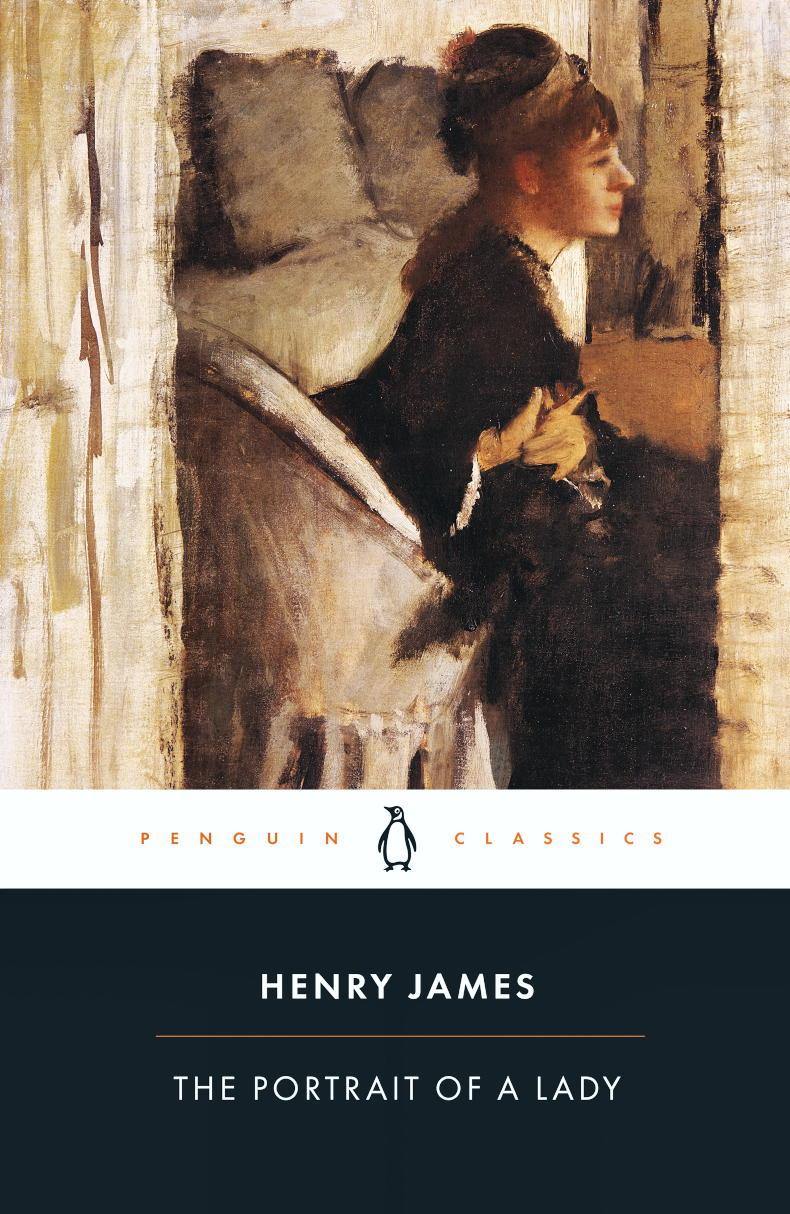Crime fiction, as a genre, is not one that immediately brings to mind a host of Irish writers, but the years ahead could well have a local star in the person of Karen Fitzgibbon.
Working in theatre and film, and based in Limerick, she has some two decades of experience with community and professional groups, co-writing, co-producing, acting in and directing plays and short films.
It transpires that she felt it was easier to communicate her imagined creations through these mediums, rather than by way of a novel, but still the urge to try the latter remained.
Gaining inspiration from the experiences of other writers she admired, Karen accepted that the road to publication was a long one.
Given her early experiences with writing – taking five years to complete one book – it is to her credit that she did not throw in the towel, or in this case the pen.
It was while “putting a shine on the first 10,000 words of book number four” that all changed, with the arrival of an email from Paula Campbell in Poolbeg Press to say that they loved the novels she had submitted to them, and offering a three-book contract.
This has led to the publication of The World’s End, and the introduction to readers of the private investigator Lana Bowen.

The World’s End by Karen Fitzgibbon, €16.99.
The inspiration for the story was a ruin near a beach in County Clare, and Karen’s mother-in-law telling her that rumours and whispers abounded about the place, and the carry-on there. With that, the seeds of a story were planted. These seeds grew into a tale filled with many characters and secrets.
Set in a small fictitious Irish fishing village, The World’s End opens with five friends spending a long weekend in a summerhouse there.
The five decide, on the last day of their stay, to take a boat trip to a nearby island, but only four return. This is in the aftermath of a night of partying, and “sizzling temptation.” The morning after their return, a woman is found, barely alive, on the island.
What happened? Well, in part two of the novel and set a year later, we meet Lana Bowen, and she uncovers the truth about what really occurred that infamous weekend. While doing so, she is also dealing with her own demons.
With 46 short, sharply written chapters and an epilogue, The World’s End is quite the page-turner. Remember the author’s name.
The World’s End,
by Karen Fitzgibbon, is published by Crimson/Poolbeg Press. €16.99
Leo's recommended reading
To enjoy
Readers of my recent interview with Donal Ryan will have gained, I hope, an added insight into the way the best-selling author works, and it certainly added an extra layer for me when it comes to how I enjoy his writing.
His new work, Heart, be at peace, shot straight to the top of the charts following its recent release, and little wonder.
While capable of being read as a standalone novel, it is a companion piece to his multi-award-winning The Spinning Heart, his publishing debut that was voted the Irish book of the decade.
A feature of Ryan’s writing, apart from its eloquence, is how well he puts a voice to each of the 21 characters, and tells their stories a decade on in time.
A colleague from that area of Tipperary paid tribute to the skill of the author, telling me that he and his wife “feel that we went to school with all of these people.”
Here is an opportunity to meet again such unforgettable characters as Bobby, Denis, Vasya, Lily and her granddaughter Millicent, and former detective Jim Gildea. All are linked, but all have a different story to tell.
Heart, be at peace, by Donal Ryan, is published by Doubleday, €18.99.

Heart, be at peace, by Donal Ryan.
Irish history
Between 1919 and 2011, the president of Ireland was always a married person. There is no reference to the president’s spouse or family in the 1937 Constitution. Yet, to varying degrees, the spouse has been readily recognised by the public.
This welcome study recreates the public and private lives of Irish presidential spouses, including Maud Griffith, Louisa Cosgrave, Phyllis Úi Cheallaigh, Sinéad de Valera, Rita Childers, Máirín Ó Dálaigh, Maeve Hillery, Nick Robinson and Martin McAleese.
Following an examination of the role of the wife of the viceroy, the work focuses on how the experience of being the wife or husband of a president affected the individual’s personal life, their ambitions, and expectations.
Bernadette Whelan’s book explores the idea that while the incumbents seem to have had little in common except that their husbands or wives held the same post, there were common threads in their backgrounds and lives.
Each individual had a sense of duty and held a concept of public service which evolved in different ways.
Irish First Ladies and First Gentlemen, 1911-2011, by Bernadette Whelan, is published by Cork University Press, €49.

Irish First Ladies and First Gentlemen, 1911-2011, by Bernadette Whelan, is published by Cork University Press.
The classic
The novels of Henry James grew in sophistication as he aged, yet his masterpiece remains The Portrait of a Lady, published in 1881 when he was in his late thirties.
The book is about Isabel Archer, an unsophisticated young American woman who charts a path into the wider world, only to find her singular approach no match for that world’s designs and duplicities. The novel is a joy to read, and James’ artistry is something to savour.
One scene alone is witness to his skill. We find Isabel sitting alone in her drawing room, meditating on the ruins of her marriage to the haughty Gilbert Osmond.
It is nighttime, and yet for page upon page no action unfolds other than the gradual arrival of morning, and her own self-awareness. She ponders on how she has come to the grim reality of her present unhappiness, all shaped by her husband.
At the end of the novel, as Isabel departs England for Italy, we are left to wonder about her unhappy fate. James makes no declaration about her motive or intent – has she headed back to Osmond? She departs with the advice, “you must save what you can of your life,” ringing in her ears.
The Portrait of a Lady, by Henry James,
is published by Penguin, €14. 
The Portrait of a Lady, by Henry James, is published by Penguin.
Crime fiction, as a genre, is not one that immediately brings to mind a host of Irish writers, but the years ahead could well have a local star in the person of Karen Fitzgibbon.
Working in theatre and film, and based in Limerick, she has some two decades of experience with community and professional groups, co-writing, co-producing, acting in and directing plays and short films.
It transpires that she felt it was easier to communicate her imagined creations through these mediums, rather than by way of a novel, but still the urge to try the latter remained.
Gaining inspiration from the experiences of other writers she admired, Karen accepted that the road to publication was a long one.
Given her early experiences with writing – taking five years to complete one book – it is to her credit that she did not throw in the towel, or in this case the pen.
It was while “putting a shine on the first 10,000 words of book number four” that all changed, with the arrival of an email from Paula Campbell in Poolbeg Press to say that they loved the novels she had submitted to them, and offering a three-book contract.
This has led to the publication of The World’s End, and the introduction to readers of the private investigator Lana Bowen.

The World’s End by Karen Fitzgibbon, €16.99.
The inspiration for the story was a ruin near a beach in County Clare, and Karen’s mother-in-law telling her that rumours and whispers abounded about the place, and the carry-on there. With that, the seeds of a story were planted. These seeds grew into a tale filled with many characters and secrets.
Set in a small fictitious Irish fishing village, The World’s End opens with five friends spending a long weekend in a summerhouse there.
The five decide, on the last day of their stay, to take a boat trip to a nearby island, but only four return. This is in the aftermath of a night of partying, and “sizzling temptation.” The morning after their return, a woman is found, barely alive, on the island.
What happened? Well, in part two of the novel and set a year later, we meet Lana Bowen, and she uncovers the truth about what really occurred that infamous weekend. While doing so, she is also dealing with her own demons.
With 46 short, sharply written chapters and an epilogue, The World’s End is quite the page-turner. Remember the author’s name.
The World’s End,
by Karen Fitzgibbon, is published by Crimson/Poolbeg Press. €16.99
Leo's recommended reading
To enjoy
Readers of my recent interview with Donal Ryan will have gained, I hope, an added insight into the way the best-selling author works, and it certainly added an extra layer for me when it comes to how I enjoy his writing.
His new work, Heart, be at peace, shot straight to the top of the charts following its recent release, and little wonder.
While capable of being read as a standalone novel, it is a companion piece to his multi-award-winning The Spinning Heart, his publishing debut that was voted the Irish book of the decade.
A feature of Ryan’s writing, apart from its eloquence, is how well he puts a voice to each of the 21 characters, and tells their stories a decade on in time.
A colleague from that area of Tipperary paid tribute to the skill of the author, telling me that he and his wife “feel that we went to school with all of these people.”
Here is an opportunity to meet again such unforgettable characters as Bobby, Denis, Vasya, Lily and her granddaughter Millicent, and former detective Jim Gildea. All are linked, but all have a different story to tell.
Heart, be at peace, by Donal Ryan, is published by Doubleday, €18.99.

Heart, be at peace, by Donal Ryan.
Irish history
Between 1919 and 2011, the president of Ireland was always a married person. There is no reference to the president’s spouse or family in the 1937 Constitution. Yet, to varying degrees, the spouse has been readily recognised by the public.
This welcome study recreates the public and private lives of Irish presidential spouses, including Maud Griffith, Louisa Cosgrave, Phyllis Úi Cheallaigh, Sinéad de Valera, Rita Childers, Máirín Ó Dálaigh, Maeve Hillery, Nick Robinson and Martin McAleese.
Following an examination of the role of the wife of the viceroy, the work focuses on how the experience of being the wife or husband of a president affected the individual’s personal life, their ambitions, and expectations.
Bernadette Whelan’s book explores the idea that while the incumbents seem to have had little in common except that their husbands or wives held the same post, there were common threads in their backgrounds and lives.
Each individual had a sense of duty and held a concept of public service which evolved in different ways.
Irish First Ladies and First Gentlemen, 1911-2011, by Bernadette Whelan, is published by Cork University Press, €49.

Irish First Ladies and First Gentlemen, 1911-2011, by Bernadette Whelan, is published by Cork University Press.
The classic
The novels of Henry James grew in sophistication as he aged, yet his masterpiece remains The Portrait of a Lady, published in 1881 when he was in his late thirties.
The book is about Isabel Archer, an unsophisticated young American woman who charts a path into the wider world, only to find her singular approach no match for that world’s designs and duplicities. The novel is a joy to read, and James’ artistry is something to savour.
One scene alone is witness to his skill. We find Isabel sitting alone in her drawing room, meditating on the ruins of her marriage to the haughty Gilbert Osmond.
It is nighttime, and yet for page upon page no action unfolds other than the gradual arrival of morning, and her own self-awareness. She ponders on how she has come to the grim reality of her present unhappiness, all shaped by her husband.
At the end of the novel, as Isabel departs England for Italy, we are left to wonder about her unhappy fate. James makes no declaration about her motive or intent – has she headed back to Osmond? She departs with the advice, “you must save what you can of your life,” ringing in her ears.
The Portrait of a Lady, by Henry James,
is published by Penguin, €14. 
The Portrait of a Lady, by Henry James, is published by Penguin.










 This is a subscriber-only article
This is a subscriber-only article










SHARING OPTIONS: